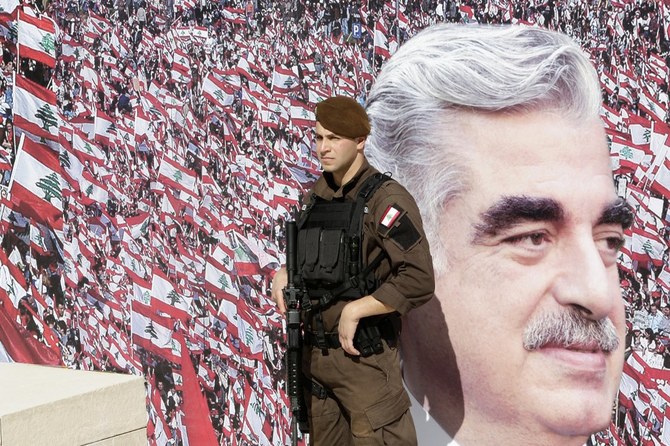
- ARAB NEWS
- 15 Jul 2025

The prosecution had appealed against the acquittal of the two men, saying there had been fundamental errors in the judgment
THE HAGUE: A UN-backed tribunal on Thursday found two Hezbollah members guilty on appeal for the 2005 death of former Lebanese prime minister Rafik Hariri, saying both were involved in the bombing that killed him.
Appeals judges at the Netherlands-based court said trial judges “erred” in 2020 by acquitting the two men, together with a third, in finding that there was a lack of evidence.
Set up in 2009 to try those responsible for the bombing that killed Hariri and 21 others, the court convicted Salim Ayyash, a member of the Lebanese Shiite Muslim movement Hezbollah.
But they acquitted Hassan Habib Merhi, Hussein Oneissi and Assad Sabra, saying there was not enough evidence to convict them.
Appeals judges granted an appeal by prosecutors, who asked that the acquittals be overturned for Merhi and Oneissi.
“The appeals chamber has unanimously decided to reverse the acquittals of misters Merhi and Oneissi. We unanimously find Mr.Merhi and Oneissi guilty,” presiding judge Ivana Hrdlickova said.
“The appeals chamber will issue arrest warrants for them later this afternoon,” she added.
All four men were tried in absentia over the February 2005 attack, when a suicide bomber detonated a van full of explosives as Hariri’s armored convoy passed on the Beirut waterfront.
The case against all four men relied almost exclusively on circumstantial evidence in the form of mobile phone records that prosecutors said showed a Hezbollah cell plotting the attack.
Hassan Nasrallah, the head of the Hezbollah movement, refused to hand over any of the suspects or to recognize the UN-backed court, which has issued an international warrant for the arrest of Ayyash.
The court said in April last year that Ayyash cannot appeal against the verdict until he turns himself in.
The Lebanon tribunal is expected to close after the appeals phase because of a cash shortage, with a further case against Ayyash over attacks on several politicians likely to go unheard.
AFP